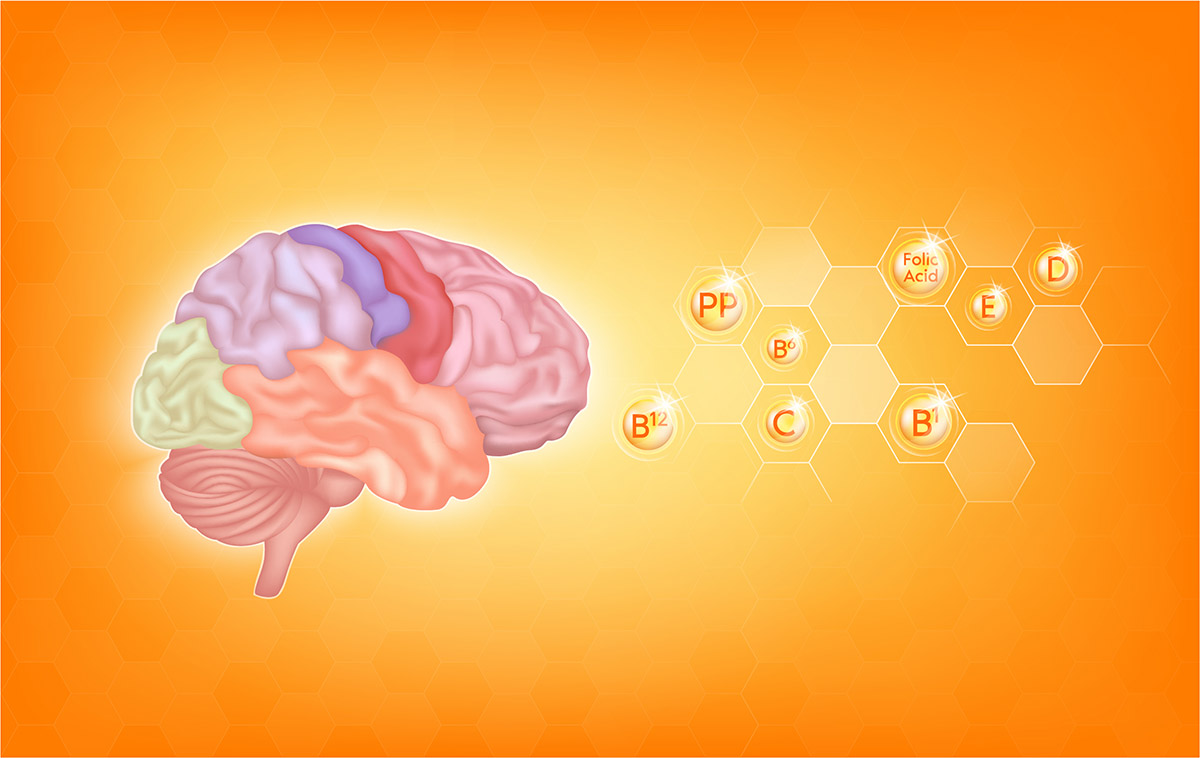Vitamin D and Dementia: Is There A Link?

While studies on vitamin D deficiency and its possible link to dementia have been ongoing for several years, a new study is the first to find a direct link between dementia and a lack of vitamin D.
The study, which came from the University of South Australia and was published in The American Journal for Clinical Nutrition, analyzed data from 294,514 participants from the UK Biobank and researched the effect of low levels of vitamin D (levels that were 25 nmo/L and below) on dementia and stroke risk.
Their findings were significant:
Why is vitamin D good for the brain?

We often think of vitamin D as being good for bone health, but scientists have been studying the effects of vitamin D on the brain for some time. Their findings prove that, put simply, vitamin D is good for the brain.
Vitamin D has been proven to provide protection for neurons in the brain, helping clear amyloid plaques, which are the proteins that lead to Alzheimer’s disease, the most common form of dementia. Therefore, low levels of vitamin D reduce that level of protection for neurons, making the brain more susceptible to dementia.
Low levels of vitamin D have also been linked to depression because vitamin D “reduces the increase in neuronal levels of calcium that are driving depression.”
The presence of vitamin D can also help promote the growth and maturation of neurons and has been associated with reduced thrombosis (or blood clotting) and helping regulate the renin-angiotensin system, which is the system that regulates our renal, vascular and cardiac physiology.
Using a research method called nonlinear Mandelian randomization, which measures variations in genes to determine why someone is predisposed to a certain disease, researchers were able to isolate low levels of vitamin D as having a causal effect on increasing someone’s risk of dementia.
Senior investigator and Director of the University of South Australia’s Australian Centre for Precision Health, Professor Elina Hyppönen emphasized how important these findings are: “If we’re able to change this reality through ensuring that none of us is severely vitamin D deficient, it would also have further benefits and we could change the health and wellbeing for thousands.”
How do I increase my levels of vitamin D?

Our primary source of vitamin D is sunlight, but you can also get vitamin D from certain foods or from supplements.
Foods that are rich in vitamin D include:
For vitamin D supplements, the current recommendation is 400-800 IU per day, though it’s safe for most people to consume 1,000-4,000 IU per day.
To find out if you are vitamin D deficient, talk to your doctor. A blood test can determine your vitamin D levels and whether or not you would benefit from taking supplements or changing your diet.
Using a research method called nonlinear Mandelian randomization, which measures variations in genes to determine why someone is predisposed to a certain disease, researchers were able to isolate low levels of vitamin D as having a causal effect on increasing someone’s risk of dementia.
Senior investigator and Director of the University of South Australia’s Australian Centre for Precision Health, Professor Elina Hyppönen emphasized how important these findings are: “If we’re able to change this reality through ensuring that none of us is severely vitamin D deficient, it would also have further benefits and we could change the health and wellbeing for thousands.”
Looking forward
While this study from the University of South Australia is significant, it’s important to note its limitations. Most of the study participants were white, had British ancestry, had intermediate to higher education and had a normal to overweight body mass index (BMI). Because of this, the study’s findings can’t be assumed to apply to the general population.
The study does, however, corroborate previous evidence that vitamin D is crucial to brain health and a lack of it could make someone more susceptible to dementia. It could encourage physicians to make sure they test their patients, especially their older adult patients, for their vitamin D levels and recommend supplements or dietary or lifestyle changes when needed.
Globally, 55 million people are living with dementia, and that number is expected to grow to 78 million by 2030. Studies like this give us hope that we could help prevent hundreds of thousands if not more people from suffering from this disease in the future.





